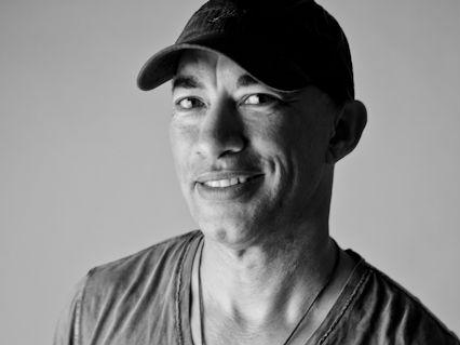Yet Do I Marvel
Yet Do I Marvel: Cyrus Cassells

IMAGINING SLAVERY, IMAGINING FREEDOM
Just as it was Phillis Wheatley's and Frederick Douglass' task to limn the dream of freedom with their whole beings and to move toward it, so it is our task, as today's African American poets, to evoke the slave-holding past's denigrating, soul-crushing weight. This symbiotic task is a distinctive feature of the work-that-must-be-done for contemporary poets of color. To grasp the complexities of our racially divisive present, we 21st century word-workers are consistently impelled to explore the specter of the slave ship, the yoke, and the pitiless auction block.
What did it feel like to be a slave? In performing a one-man show that consisted entirely of Frederick Douglass' own words, I found my most daunting challenge as an actor was to imagine the whippings and beatings which Douglass endured, maltreatment that spurred his life-changing physical combat with his master; in the process, I came to cherish Robert Hayden's concise, indelible poem, written in the Civil Rights era, about the immense legacy of great 19th century abolitionist, orator, and liberated slave:
FREDERICK DOUGLASS
When it is finally ours, this freedom, this liberty, this beautiful
and terrible thing, needful to man as air,
usable as earth; when it belongs at last to all,
when it is truly instinct, brain matter, diastole, systole,
reflex action; when it is finally won; when it is more
than the gaudy mumbo jumbo of politicians:
this man, this Douglass, this former slave, this Negro
beaten to his knees, exiled, visioning a world
where none is lonely, none hunted, alien,
this man, superb in love and logic, this man
shall be remembered. Oh, not with statues' rhetoric,
not with legends and poems and wreaths of bronze alone,
but with the lives grown out of his life, the lives
fleshing his dream of the beautiful, needful thing.
In my newly-completed book of poems, The Gospel according to Wild Indigo, a celebration of the resilience of Sea Island slaves and Gullah culture, the personas of "okra-cooking," rice plantation slaves bear witness to an America, where Sullivan Island becomes "our Ellis Island," where a "bondswoman" hopes her daughter "will never fear sale/or the bottom of the sea," and a slave/survivor asks the haunting, riveting question:
"Who better to define freedom/than a slave?"
Never strangers to that inhumane and lacerating past, alive to the racial labyrinths of the present, we are poets descended from the great, daring life of dreaming Phillis and the eloquent runaway, Frederick Douglass, and, as ever, our enslaved ancestors continue to speak to us and through us, to demand justice, steadfastness, and empathy, to "vision a world" where "none is hunted," and freedom is as "needful. . . as air, usable as earth."
Published 2014.


